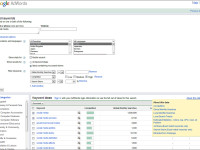In February 2007, Stephanie Lenz, a California mother of a pair of young toddlers, shot a short video of her children dancing in the family kitchen with the Prince song “Let’s Go Crazy” playing in the background. Lenz proceeded to upload the 29 second video to YouTube so that friends and family could see it.
Thousands of hours of user-generated video are posted online every day and there was nothing particularly remarkable about the dancing baby video. What set it apart, however, was that several months later Universal Music Group, Prince’s music label, sent a takedown notice to YouTube claiming that it infringed its copyright.
My weekly technology law column (Toronto Star version, homepage version) notes that similar takedown notices are sent to Internet intermediaries such as Google every hour. Yet this particular takedown demand seemed so at odds with the law (few experts believe it infringes copyright) that it sparked an eight year court battle in the United States and served as the inspiration for a 2012 Canadian copyright reform that protects users and websites that create and host non-commercial user-generated content.











